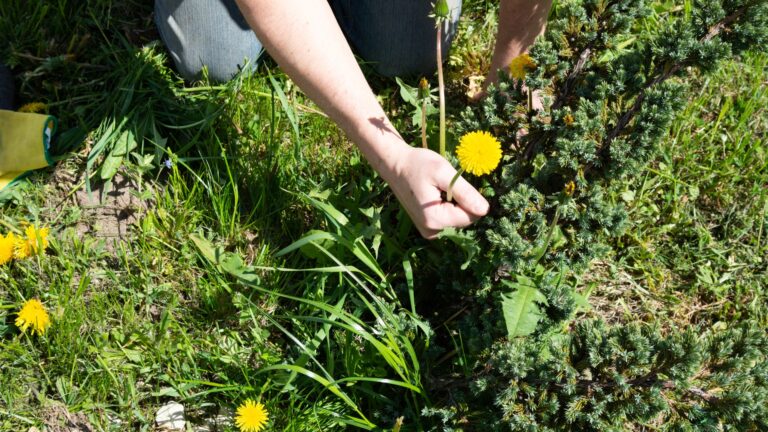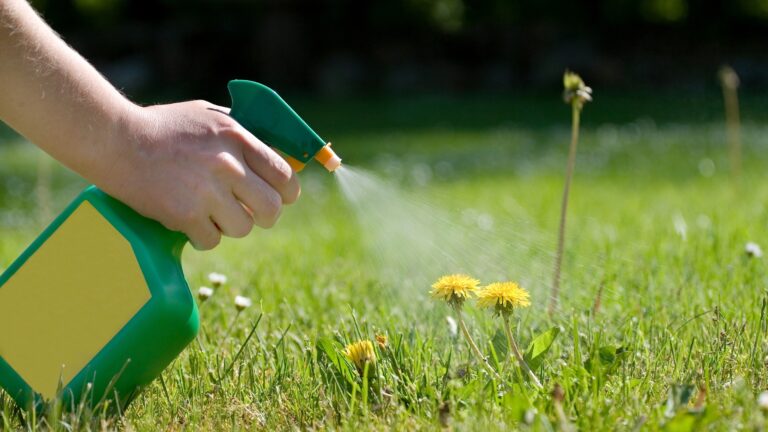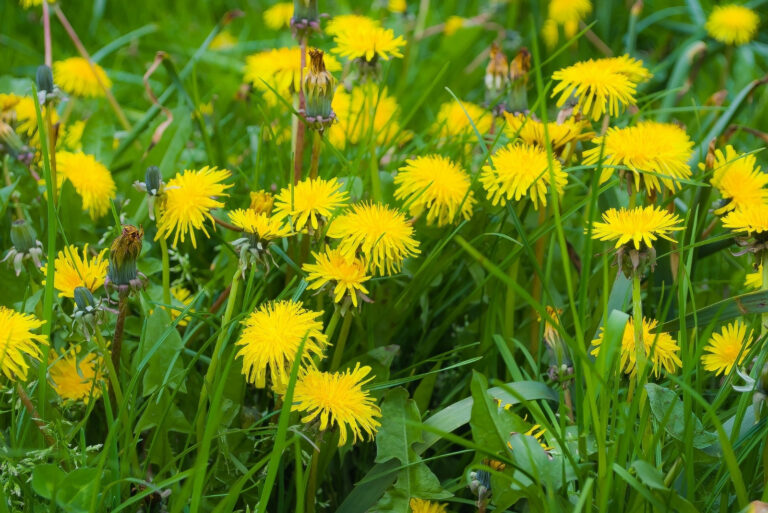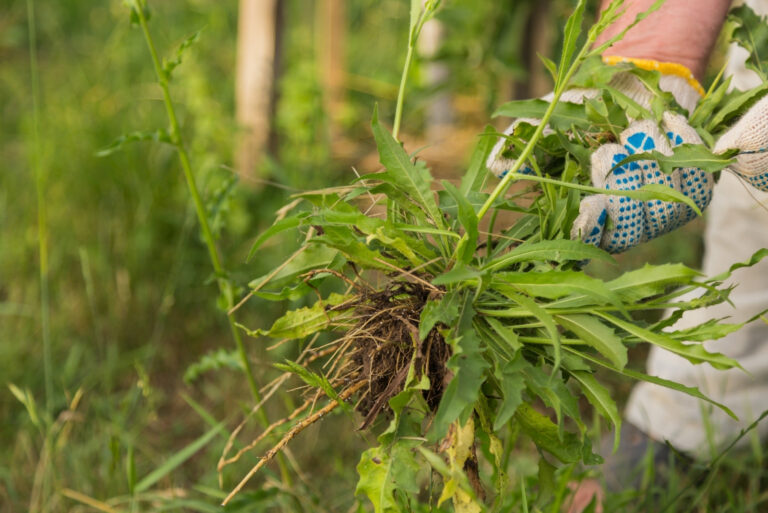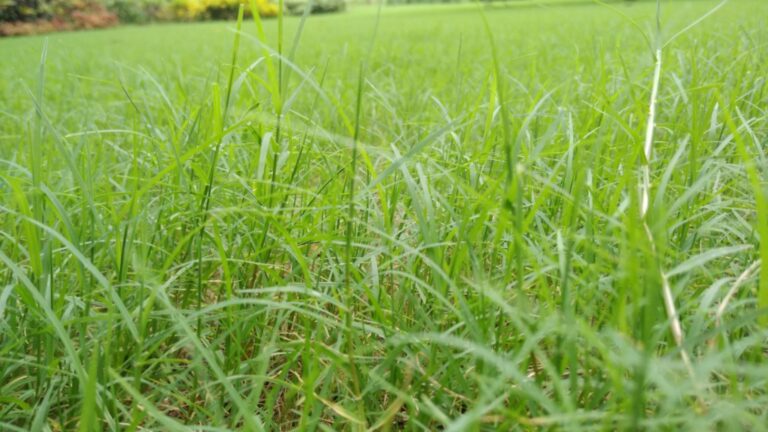16 Natural Tricks To Wipe Out Weeds (And 3 Things That Make It Worse)
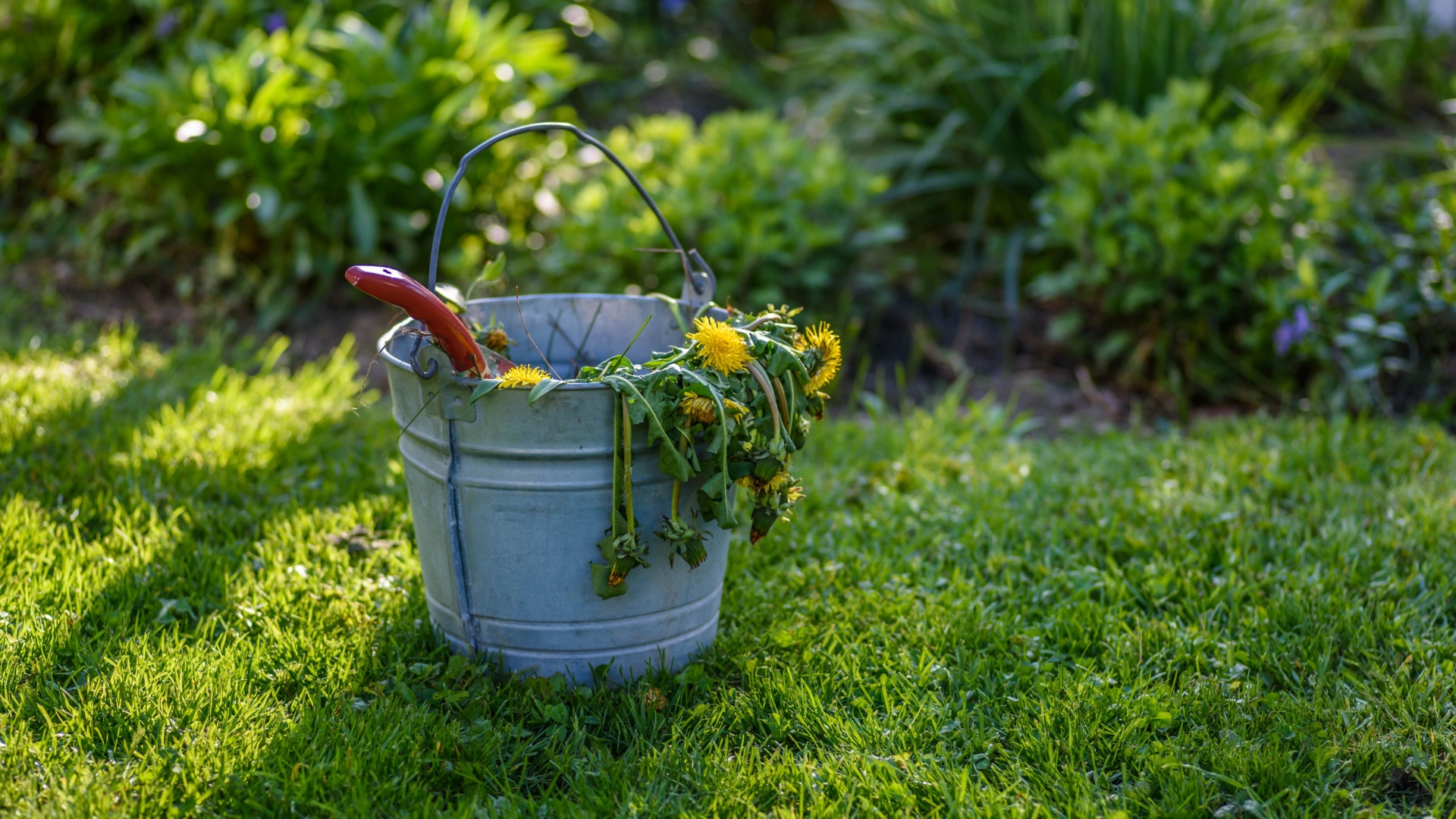
Weeds have a knack for showing up where they’re least wanted—cracking through sidewalks, creeping into garden beds, and popping up like uninvited guests. But before you reach for harsh chemicals, it’s time to fight back the natural way.
These 16 simple tricks can help you wipe out weeds without wrecking your soil or sanity—and we’ll also flag 3 things you should never use unless you want to make the problem worse.
1. Pull Weeds After Rain
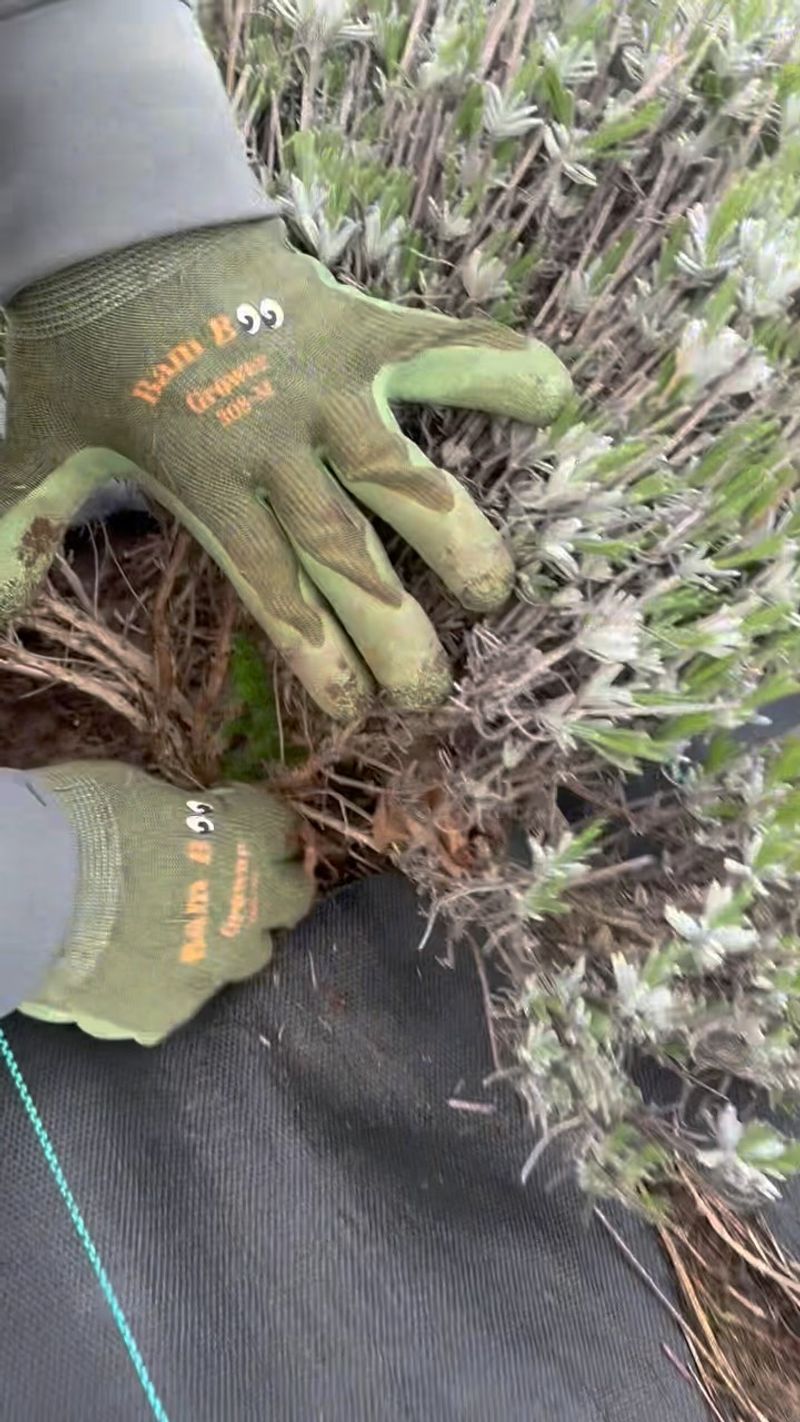
Timing is everything when it comes to hand-pulling weeds. The soil becomes softer after a good rain, making roots easier to extract completely. Grab weeds close to the ground and pull slowly to ensure you get the entire root system.
Keep a garden bucket nearby to collect what you pull, preventing seeds from dropping back into the soil. For stubborn taproots like dandelions, use a weeding tool to dig deep and remove the entire root.
2. Boiling Water Treatment

Your kitchen kettle becomes a powerful weed killer with this simple method. Just boil water and carefully pour it directly onto weeds, especially those growing in sidewalk cracks or driveway seams. The scalding temperature instantly kills the plants down to their roots.
For best results, apply on a sunny day when the plants are already stressed from heat. Repeat applications may be necessary for particularly stubborn weeds. Remember to protect nearby plants you want to keep!
3. Vinegar Spray Solution
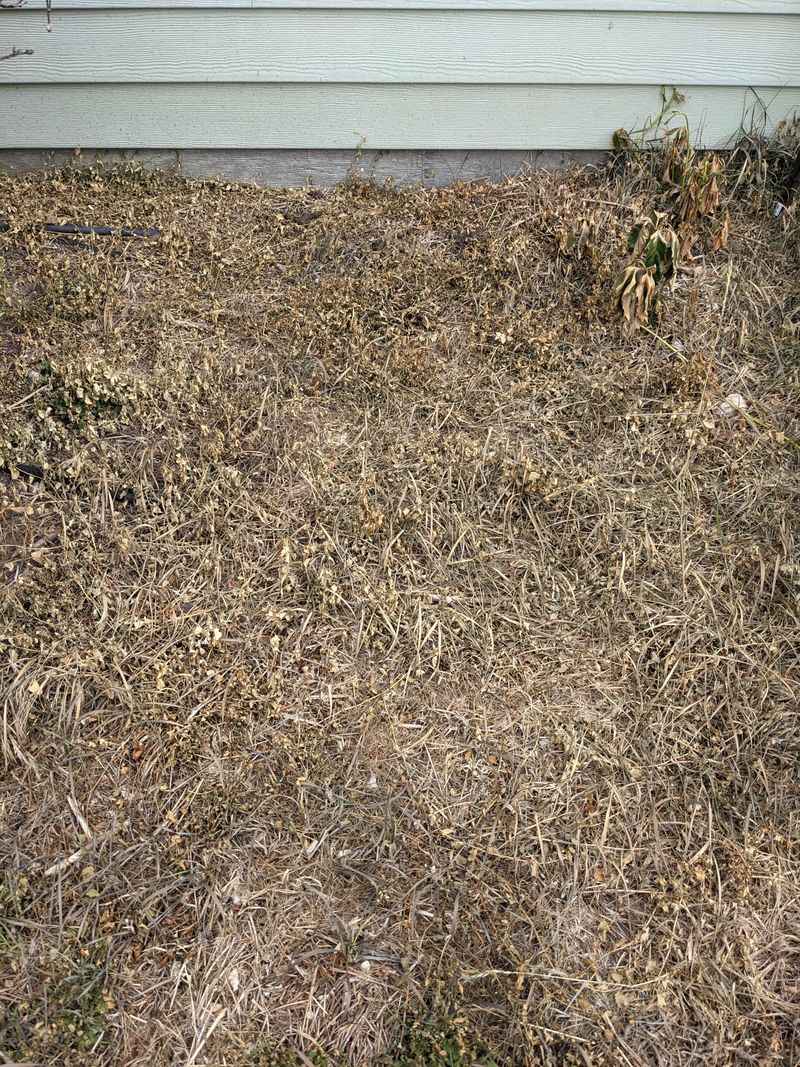
Regular household vinegar contains acetic acid that dehydrates and kills many weed varieties. Fill a spray bottle with white vinegar and add a tablespoon of dish soap to help it stick to the leaves. Apply directly to weeds on a sunny, dry day for maximum effectiveness.
The vinegar works by breaking down the waxy protective coating on leaves. Target only the weeds, as this solution will harm any plant it touches. For tougher weeds, horticultural vinegar with higher acidity levels offers even stronger results.
4. Salt as a Weed Barrier
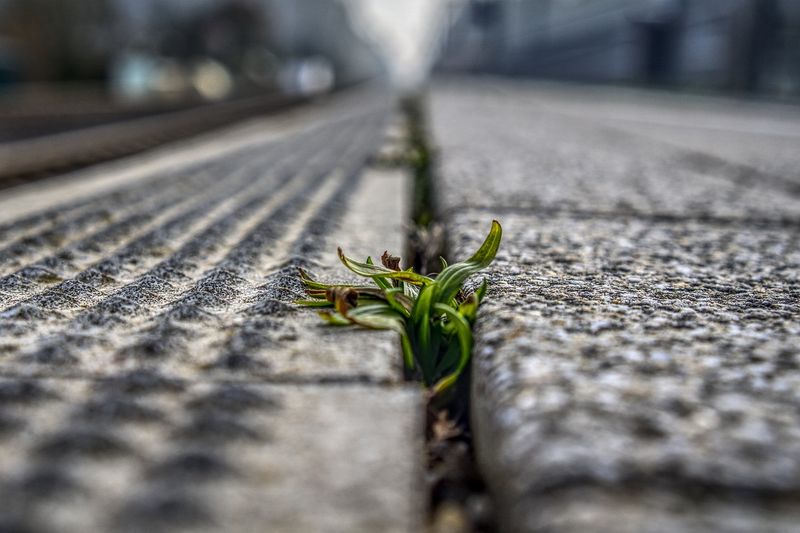
Common table salt creates a hostile environment where weeds struggle to grow. Mix one part salt with three parts water and apply to areas like gravel driveways or between patio stones where you never want plants to grow again.
Salt works by disrupting the water balance in plant cells. Use caution with this method, as salt can leach into surrounding soil and affect desired plants. Never use near garden beds or lawns unless you want to create a permanent dead zone.
5. Cornmeal Gluten Application
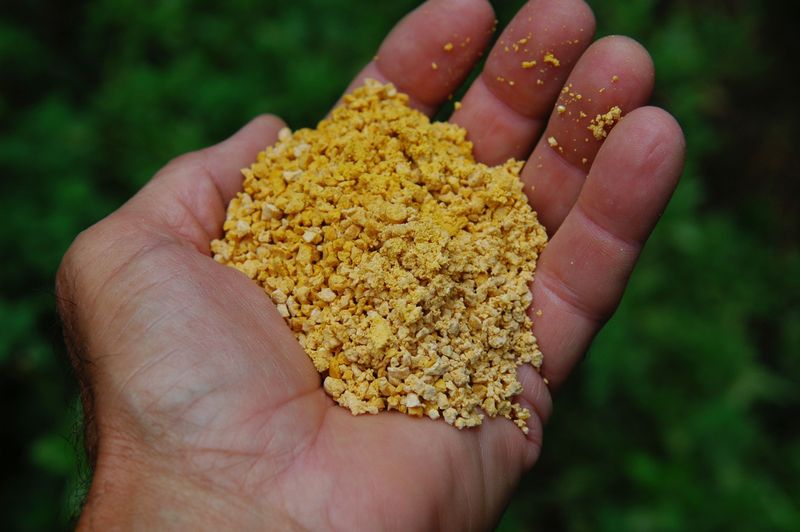
Cornmeal gluten works as a natural pre-emergent herbicide that prevents weed seeds from sprouting. Sprinkle it generously across garden beds in early spring before weed seeds germinate. As a bonus, it adds nitrogen to your soil as it breaks down!
Apply at a rate of 20 pounds per 1,000 square feet for effective control. Water lightly after application, then allow the area to dry completely. The cornmeal creates a barrier that stops root development in seedlings without harming established plants.
6. Newspaper or Cardboard Mulch
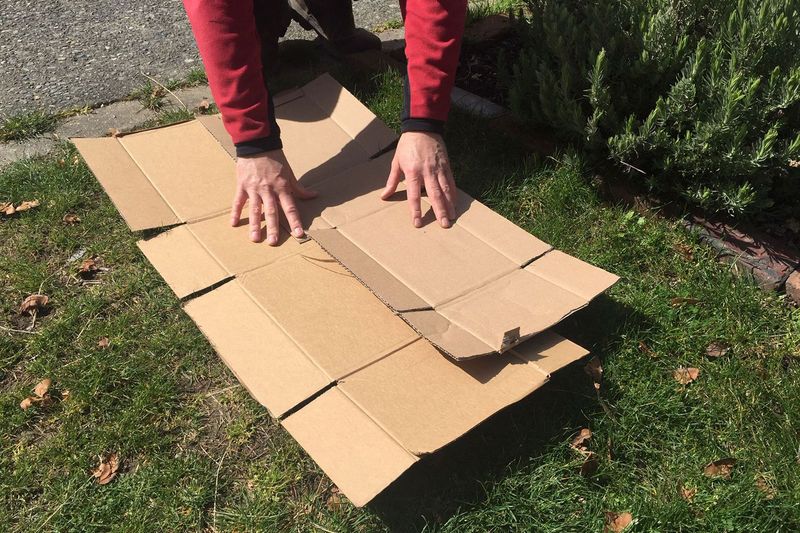
Recycled paper products create an excellent weed barrier while improving your soil. Lay several layers of newspaper or a single layer of cardboard directly over weedy areas, overlapping edges by at least 6 inches. Wet thoroughly, then cover with a few inches of organic mulch.
Light and oxygen can’t reach weed seeds, preventing germination. The paper breaks down over time, adding organic matter to your soil. Make sure to remove any plastic tape or labels from cardboard before using in your garden.
7. Flame Weeding Technique
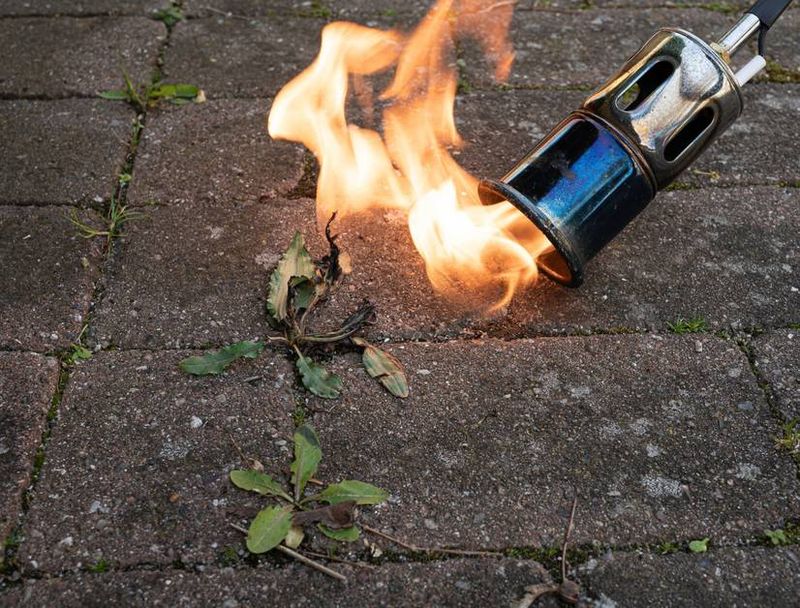
Propane torch weeders offer a chemical-free way to zap weeds instantly. The flame doesn’t actually burn the weed but causes the plant cells to explode from rapid heat expansion. Just pass the flame briefly over the weed until it wilts.
Most effective on young weeds and those growing in pathways or driveways. Always follow safety precautions and never use during dry conditions or near flammable materials. Multiple treatments may be needed for persistent weeds with established root systems.
8. Citrus Oil Spray
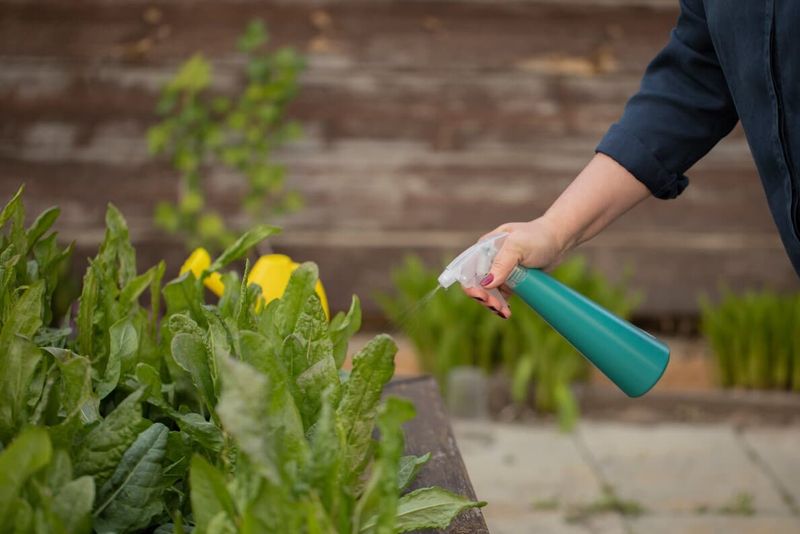
D-limonene, found in citrus peels, acts as a natural weed killer by stripping away the waxy coating that protects leaves. Make your own by steeping citrus peels in vinegar for two weeks, then straining and adding a drop of dish soap before spraying directly on weeds.
The oil works best on young, tender weeds on warm, sunny days. Apply carefully, as the solution will damage any plant it contacts. For stronger results, commercial citrus oil concentrates can be diluted according to package directions.
9. Hand Weeding Tools
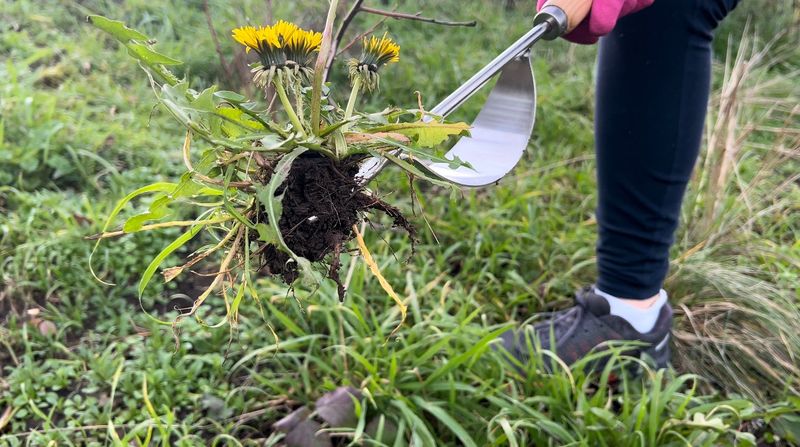
Specialized weeding tools make manual removal much easier on your back and knees. Long-handled weeders with forked tips excel at removing tap-rooted weeds like dandelions. Hoes with sharp edges cut weeds just below the soil surface with minimal effort.
Cape cod weeders feature an angled blade perfect for tight spaces between plants. Keep tools clean and sharp for maximum effectiveness. The best time to use these tools is when soil is slightly damp but not soggy, allowing easier root extraction.
10. Baking Soda Application
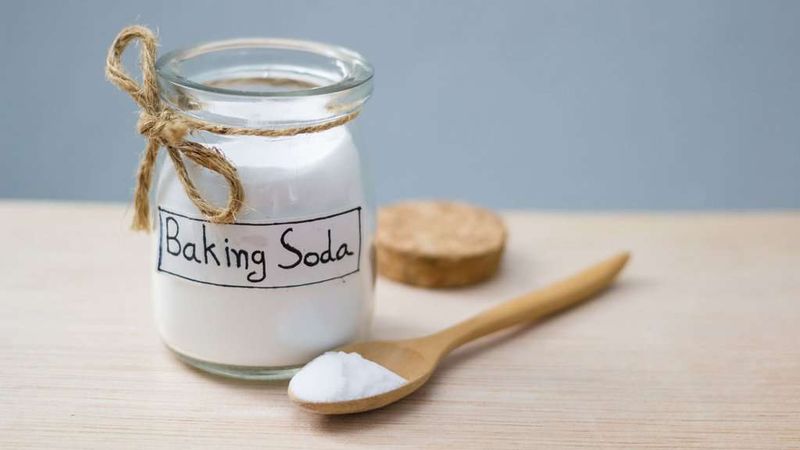
Common baking soda creates an alkaline environment that most weeds cannot tolerate. Sprinkle it generously on weeds growing in sidewalk cracks or between patio stones. For added effectiveness, wet the weeds first so the powder sticks better to the foliage.
The sodium content disrupts the plant’s internal water balance. Apply on dry, sunny days for best results. This method works particularly well for weeds with shallow root systems and those growing in naturally acidic soil areas.
11. Competitive Planting Strategy
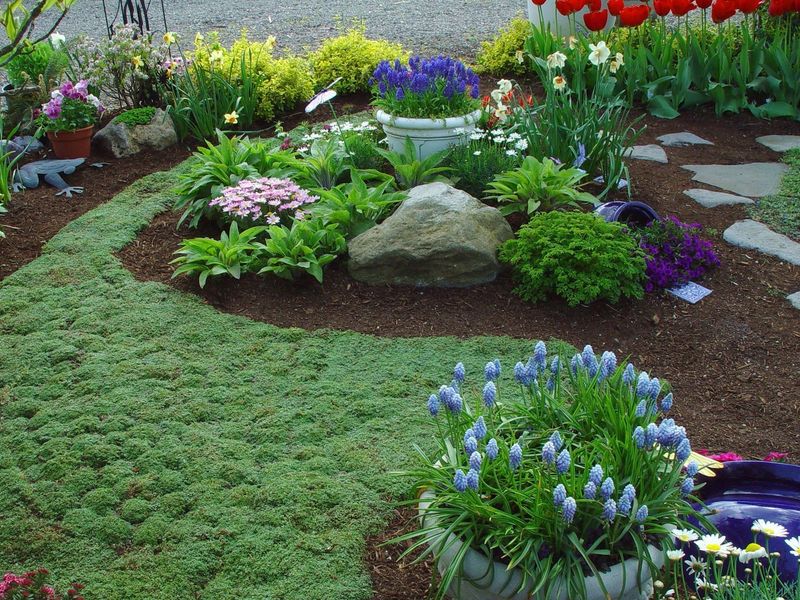
Strategic planting creates natural weed suppression by leaving no room for invaders. Choose plants that grow densely, like creeping thyme or sweet alyssum, to cover bare soil areas. Plant vegetables and flowers closer together than typically recommended to shade out potential weed growth.
Ground covers like clover make excellent lawn alternatives that naturally crowd out weeds. In vegetable gardens, interplanting compatible crops maximizes space and minimizes weed opportunities. The key is maintaining healthy soil that favors your chosen plants over opportunistic weeds.
12. Goat Grazing Method

Renting goats offers an entertaining and effective way to clear large weed-infested areas. These animals happily munch on many problem plants, including poison ivy and kudzu, that humans prefer not to handle. Their digestive systems destroy most weed seeds, preventing future growth.
Portable electric fencing keeps goats contained to target areas. One adult goat can clear approximately 500 square feet of weeds per day. As a bonus, their hooves help work their manure into the soil, improving fertility while they eliminate weeds.
13. Chicken Weed Patrol
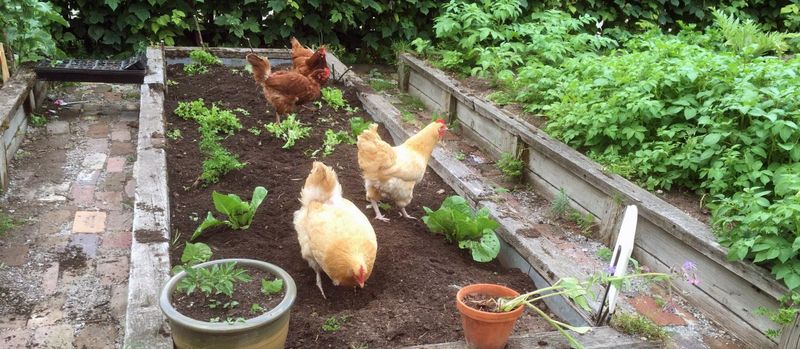
Backyard chickens turn weed control into egg production! These feathered friends scratch at soil, exposing and eating weed seeds before they can germinate. Their constant pecking destroys young weeds before they become established.
Use portable chicken tractors to focus their efforts on specific garden areas. Four to six chickens can effectively manage weeds in a typical backyard garden. Their droppings add nitrogen to the soil, benefiting your desired plants. Just keep them away from tender seedlings and vegetables ready for harvest.
14. Horticultural Vinegar Concentrate
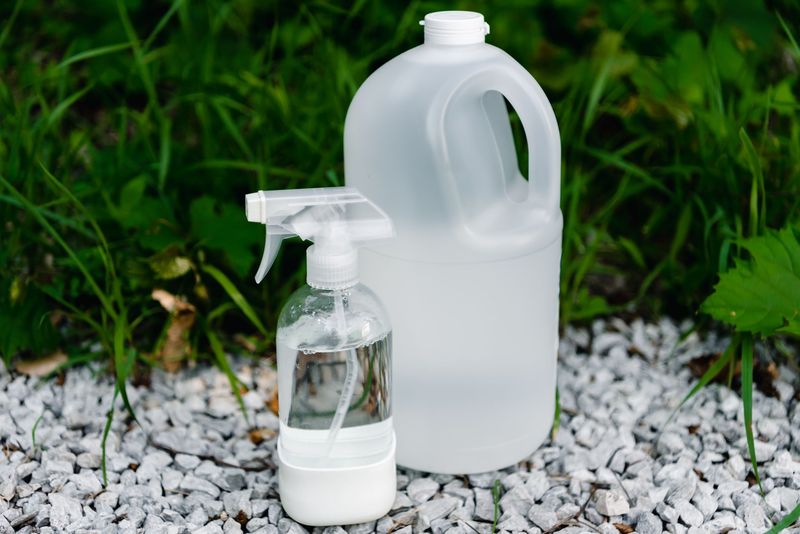
Stronger than household vinegar, horticultural vinegar contains 20-30% acetic acid that quickly kills weeds on contact. Mix with a tablespoon of dish soap and spray directly on unwanted plants during hot, sunny weather for maximum effectiveness.
The high acidity burns through plant tissue within hours. Always wear gloves and eye protection when applying, as this concentration can irritate skin and eyes. Target application carefully, as this solution kills any plant it contacts, not just weeds.
15. Vodka Spray for Sunshine Weeds
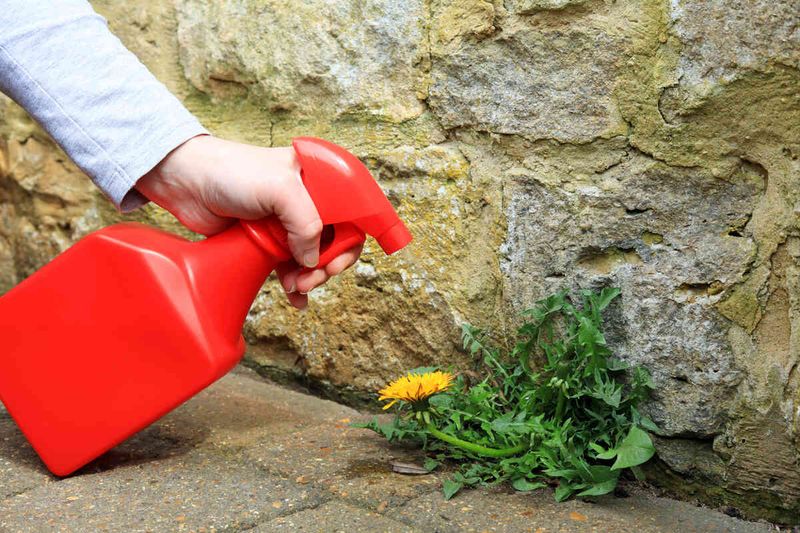
Surprisingly, vodka makes an effective weed killer for plants growing in sunny locations. Mix 1 ounce of vodka with 2 cups of water and a few drops of dish soap in a spray bottle. Apply directly to weeds during bright sunshine.
The alcohol breaks down the waxy cuticle that protects leaves from dehydration. Without this protection, sun-loving weeds quickly dry out and die. This method works best on weeds growing in full sun areas and is less effective on shade-tolerant varieties.
16. Mulch Maintenance Routine
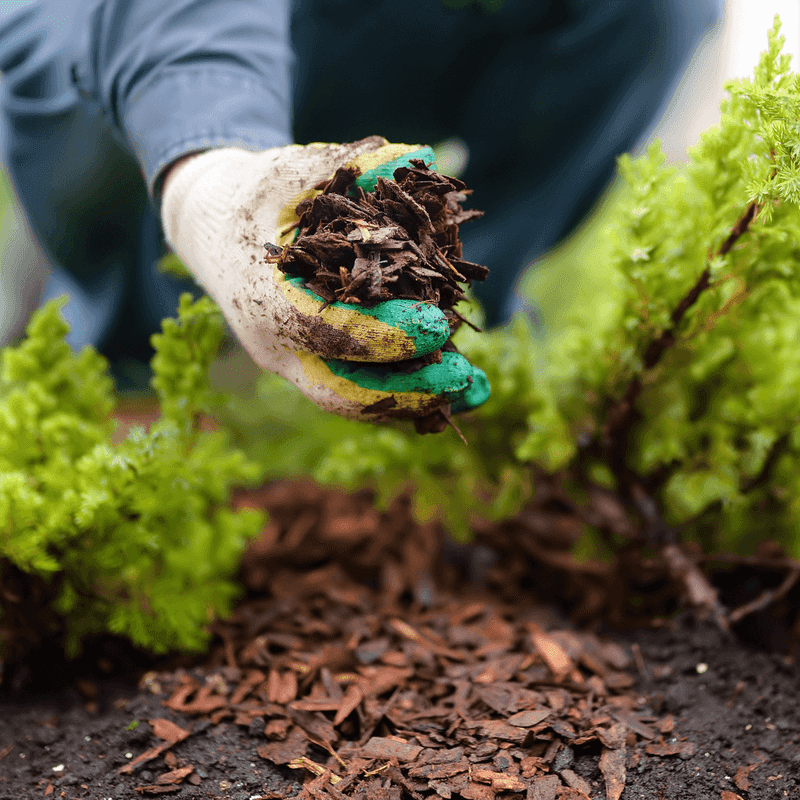
Organic mulches like wood chips, straw, or pine needles block light from reaching weed seeds while conserving soil moisture. Apply a 3-4 inch layer around plants, making sure to keep mulch from directly touching plant stems to prevent rot.
Refresh mulch layers annually as they decompose. For vegetable gardens, lighter materials like straw work best, while perennial beds benefit from longer-lasting wood chips. Black plastic mulch provides excellent weed suppression in vegetable rows while warming the soil for heat-loving crops.
17. NEVER USE: Bleach Solutions
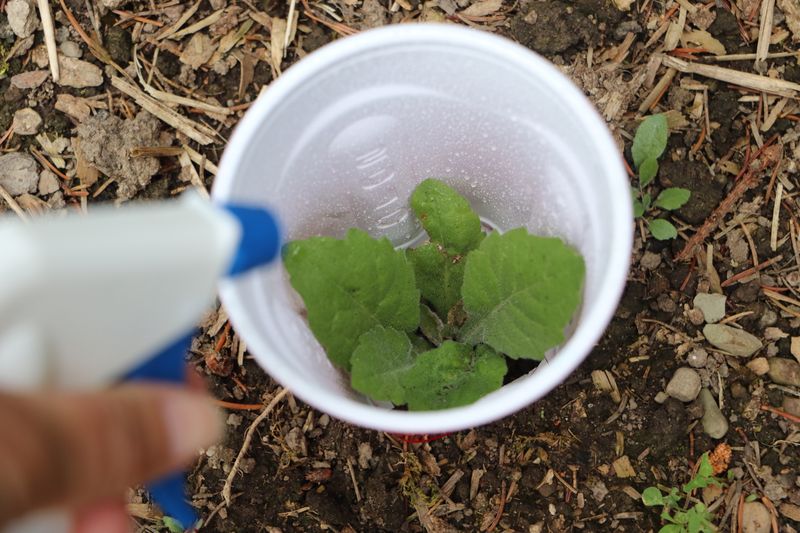
Despite online advice suggesting bleach for weed control, this household cleaner causes serious environmental harm. Bleach contains sodium hypochlorite that kills beneficial soil organisms and can contaminate groundwater. Even diluted solutions remain toxic to the ecosystem.
Bleach doesn’t break down quickly in soil, creating lasting damage to soil health. It can also splash onto desired plants, causing immediate leaf burn and eventual death. The risks to pets, wildlife, and children make this a dangerous choice compared to safer natural alternatives.
18. NEVER USE: Table Salt in Garden Beds
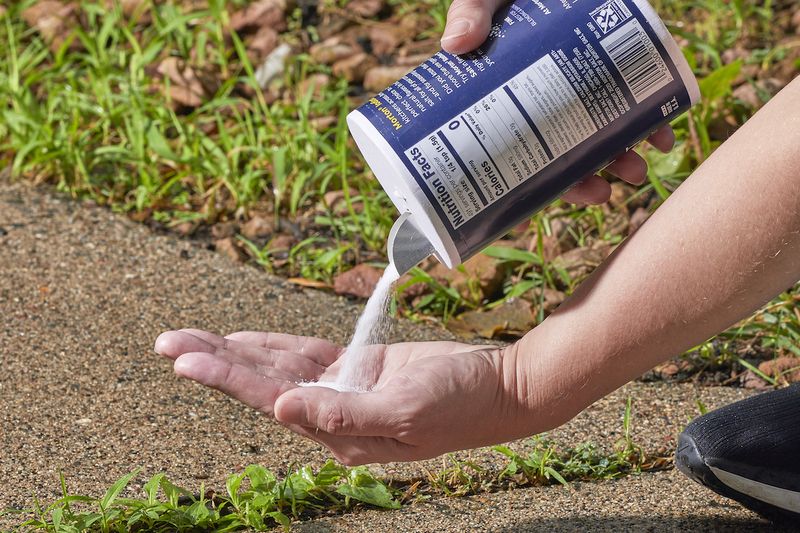
While salt works for permanent weed prevention in driveways, never use it in garden beds or lawns. Sodium chloride creates long-term soil toxicity that prevents any future plant growth and can spread beyond your target area.
Salt disrupts the soil’s natural balance, destroying beneficial microorganisms and earthworms. It can take years for soil to recover from salt contamination. The salt also leaches into groundwater, potentially affecting nearby trees and shrubs with extensive root systems.
19. NEVER USE: Gasoline or Motor Oil
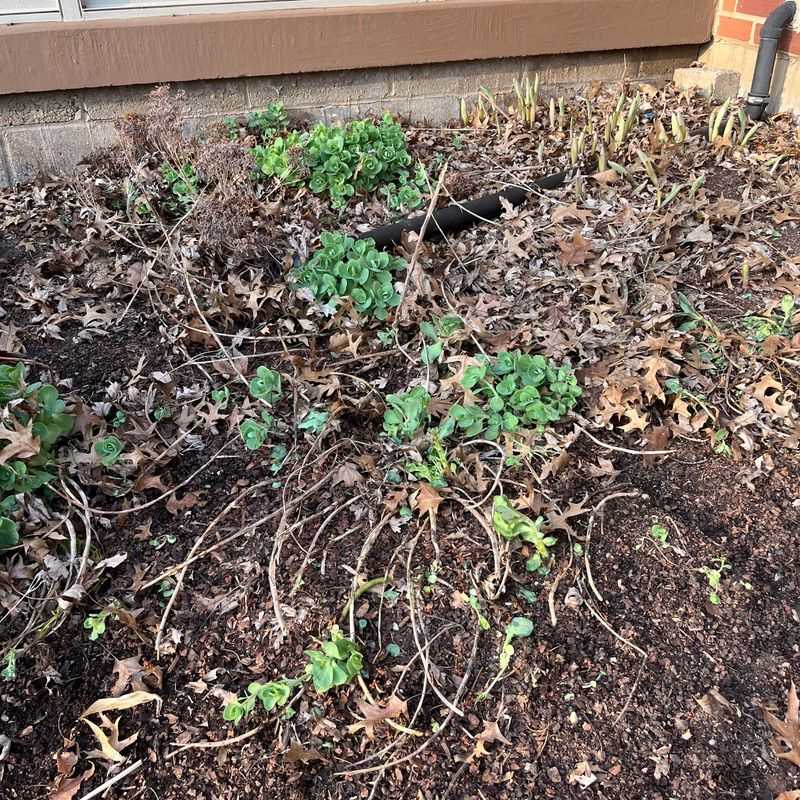
Old-school advice about using petroleum products for weed control is dangerously outdated. Gasoline and motor oil contain toxic compounds that contaminate soil and groundwater for decades. These chemicals kill all soil life, not just weeds.
Petroleum products contain carcinogens that pose serious health risks to humans and animals. They’re also highly flammable, creating fire hazards in the garden. Even small amounts can render soil unable to support plant life and may require professional remediation to fix.

